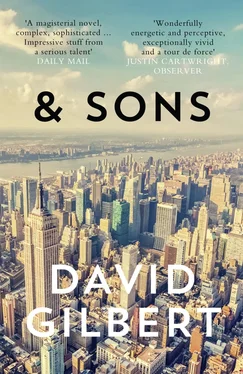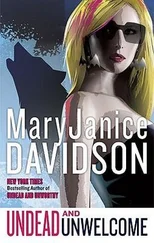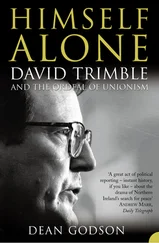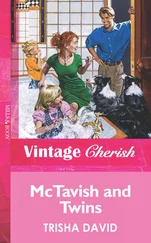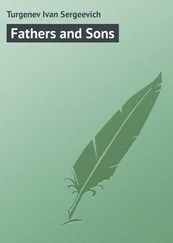All this happened in mid-March, twelve years ago. I recall it being the first warm day of the year, a small relief after months of near-impossible cold. Just a week earlier, the temperature sulked in the teens, the windchill dragging the brat into newborn territory. Windows rattled in their sashes, and the sky resembled a headfirst plunge onto cement. After a long winter of dying, my father was finally dead. I remember standing up and covering his face, like they do in the movies, his bright blue socks poking free from the bottom of the comforter. He always wore socks with his pajamas and never bothered to sleep under the sheets. It was as if his dreams had no right to unmake a bed. I went over and opened both windows, no longer cursing the draft but hoping the cold might shelter his body for a bit. But on the day of his funeral, the city seemed near sweltering, even if the thermostat within St. James maintained its autumnal chill, the Episcopalian constant of scotch and tweed.
Churches are glorified attics, A. N. Dyer once wrote, but now he resembled a worshipper deep in prayer—head lowered, hands crammed against stomach. His posture reminded me of a comma, its intent not yet determined. People assumed he was upset. Of course he was upset. He and my father were the oldest of friends, born just eleven days apart in the same Manhattan hospital. Growing up, this minor divide seemed important, with Andrew teasing the older Charlie that he was destined to die first—it was just basic actuarial math—and Andrew would bury his friend and live his remaining numbered days in a glorious Topping-free state. “The worms and creepy-crawlies will eat you while I swig champagne.” This joke carried on until the punch line became infused with intimacy and what once made young Charlie cry now made him smile, even toward the end. “You really are milking this,” Andrew muttered during his final visit. “I’ve had the bubbly on ice for a month now.” He sat by the bed, like a benched player witnessing an awful defeat. My father was no longer speaking. That bully with the scythe straddled his chest and dared him to breathe, c’mon, breathe. So Andrew decided to give his friend the last word by leaning closer and stage-whispering in his ear, “This is where you tell me to go look in the mirror, with all my pills a day and my ruined joints and unsalvageable lower midsection; this is where you point and say with the awful knowledge of those who go first, ‘You’re next.’ ” Andrew was rather pleased with this comeback. He wondered how far back his dying friend could reach, if apologizing was worth all the dragging up, but really he decided the important thing was that he was here, A. N. Dyer in the flesh, today’s visit no small feat considering the state of his big toe. It had been a two-Vicodin morning. Charlie for his troubles sported a morphine drip. “Just look at us,” Andrew started to say when Charlie’s right hand took unexpected flight and flopped like a dead bird onto Andrew’s knee. His fingernails were thick and yellow, and Andrew recalled from his more macabre youth the keratin that keeps growing after death, which raised his eyes to that weedy Topping hair and how in the coffin Charlie would miss his monthly trim and turn bohemian, like Beethoven conducting his own decay. Unnerved, Andrew gave his friend a gentle pat. His own hand seemed hardly any better. Then Charlie tried to speak, he tried and tried—clearly he had something to say—but all meaning remained locked up in his throat and what rattled free sounded like one of those cheap Hollywood scarefests where the living transform into the contagious undead and you had best run. To his credit, Andrew refused to look away. While he was obviously upset, he also seemed embarrassed, perhaps more embarrassed than upset, as if dying involved a humiliating confession. Please let me go, he probably begged to himself. Release me. After a minute of listening to this hopeless rasp he interrupted by saying, “I’m sorry, pal,” and he placed his hand on Charlie’s chest and kissed him softly on the head. That was good enough, right?
Charles Henry Topping earned a respectable if pictureless two-hundred-word obit in The New York Times —lawyer, philanthropist, trustee, world-class decoy collector, and lifelong friend of the novelist A. N. Dyer, who often wrote about the blue-blooded world of the Toppings and the Dyers. Wrote? I’m sure Andrew marveled at that particular choice of tense. It likely surprised him that my father even warranted a mention in the Times . How little a life required nowadays.
The church organist played the last of the Mendelssohn prelude.
Andrew curled farther forward in his pew, as if pressed by the world behind him. If only Isabel were here. She would have known what to say. “Enough thinking about your miserable self.” She could cut through him like no other. All day yesterday Andrew had sat over his IBM Selectric and found little to recall about his friend except that he liked bacon, liked bacon tremendously. Charlie could eat a whole slab of it. BLTs. Bacon burgers. Bacon and mayonnaise sandwiches. Liver wrapped in bacon. Disgusting. Of course there was more to say (after all, the Times managed two hundred words) but it seemed that so much of the Dyer-Topping friendship was based on those early years when action trumped language and bacon was as profound as anything. Since birth their relationship was as fixed as the stars. That was a large part of its charm. Like many men who keep friends in orbits of various length, a month, six months, a year might pass without talking and yet they could pick right up again, unfazed. The two of them were close without question so why bother searching for answers. Talk centered on the trivial, past and present, on summers and schoolmates, those earnest memories of youth, while the stickier issues, like disease and divorce, death and depression, occurred on the subatomic level: they had their fundamental effect, their important interactions, but they had no identifiable consequence when having a pleasant meal together, a meal likely pushed upon them by their ever-attentive wives.
Charlie sure loved his bacon.
Andrew removed the eulogy from his suit jacket.
How can I read this crap in public? he wondered. How will I even manage to climb the lectern without my gout igniting a thousand crystal-cracking explosions? My bedrock is nothing but chalkstone. From his pocket he retrieved then popped his just-in-case Vicodin, the lint-covered backup to his post-breakfast Vicodin. Just swallowing the pill seemed to hurt, as if ground-up glass were part of its pharmacology. The organist approached her tonal amen. Behind the altar loomed that massive golden screen with its carved miniatures of important church figures, once memorized by Andrew and Charlie during their Sunday school days, with that cow Miss Kepplinger insisting on a metronomic recital of names— St. Polycarp , St. Gregory of Nazianzus— a pause and no snack for you— St. Michael, St. Uriel —and while Andrew had a strong memory— St. Raphael, St. Gabriel —if old Miss Moo were tapping her clubfoot today—the fifth archangel up top, um, the patron saint of all who forgive, um, the angel who stopped Abraham’s Issac-slaying hand, um—he would have gone graham crackerless. But there was no tapping. Not today. Mendelssohn was done and Charlie was dead and Andrew was a few minutes away from mortifying his more famous self in front of all these people.
Just leave right now, shouted in his head.
Pull the old fire alarm and bolt.
He blamed the whole mess on the second Mrs. Topping, my stepmother. Lucy had the unique ability to corner a person on the phone. “He did love you,” she told him the day after my father died.
“Yes,” Andrew said.
Читать дальше
